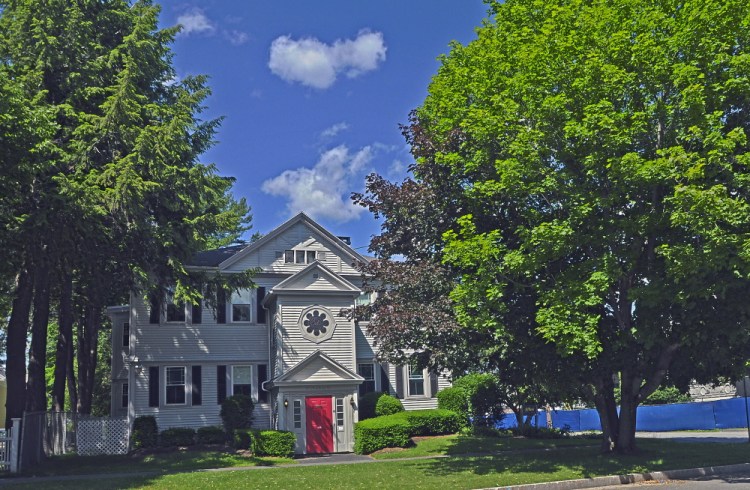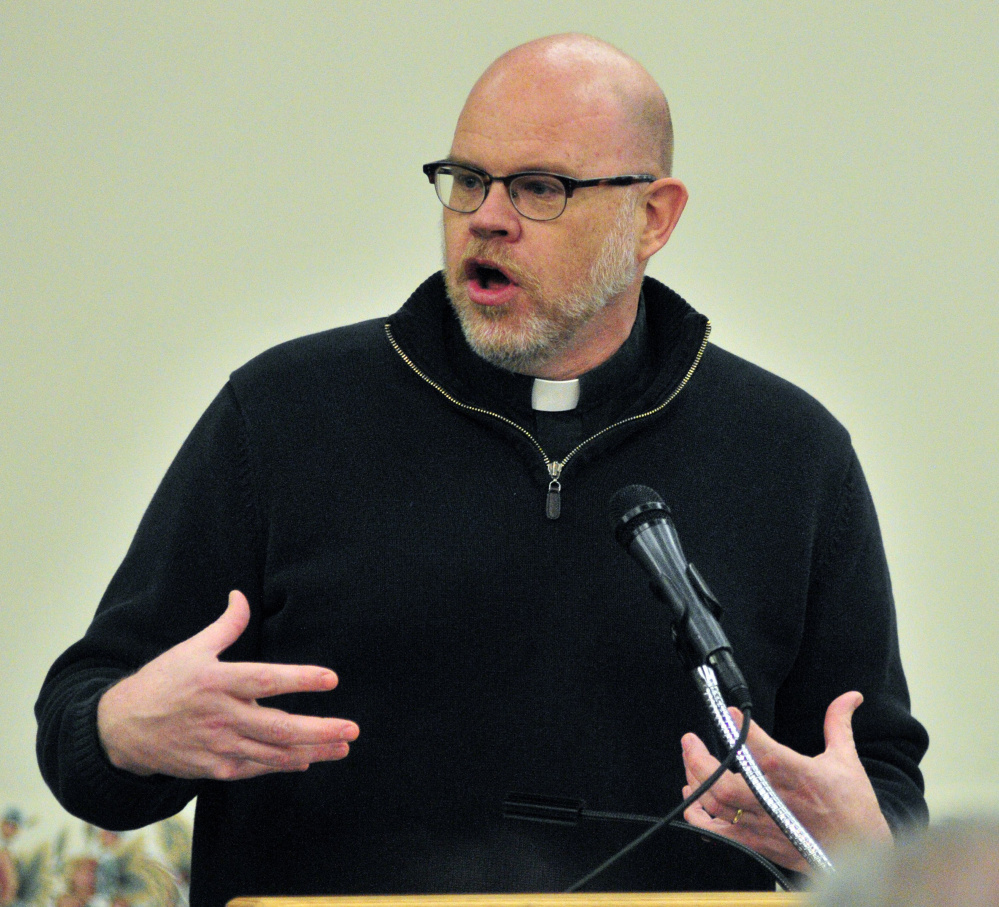AUGUSTA — St. Mark’s Home will soon be for sale after a previous plan to give the home and its endowment away to a nonprofit group was unsuccessful — at least in part because of changes the city made to zoning rules, a church leader said.
Instead of giving the home away, church leaders now plan to sell it and use the proceeds of the sale, and income from an approximately $600,000 endowment, to help the needy in Augusta. They see St. Mark’s Home’s mission as providing services and ministry “to those on the margins in Augusta, with the same spirit with which St. Mark’s Home was envisioned all those years ago,” according to the Rev. Erik Karas, pastor of the church.
Church officials previously believed requirements attached to the donation of the former 17-bedroom boarding home at the corner of Winthrop and Pleasant streets in Augusta by Allen Lambard required the endowment to remain with the home and to be used to provide help to poor people from that location.
However, Karas said they recently learned St. Mark’s could, and received the courts’ permission to, sell the property and keep the proceeds, and endowment, as long as the income from the endowment is used to continue St. Mark’s Home’s mission.
That mission was described in 1870 as caring for indigent women of Augusta, though the restriction on using the money to help only women was lifted previously by action by the Legislature, which created the St. Mark’s Home entity by a special act in 1871.
Karas said the mission of serving the “indigent,” in 1870s terminology, will be continued by the church. They will use the St. Mark’s Home money to help “people on the margins,” including through existing church-involved services such as Addie’s Attic clothing bank and Everyday Essentials, which provides toiletries and services to immigrants and other new Mainers settling in Augusta.
“We looked for an alternative way to live out the spirit of the gift given to the church,” Karas said. “We originally thought we did have to do all that from that (St. Mark’s Home) property. But through the courts, we received clarification that’s not the case.”
Karas said Wednesday church leaders were meeting with a real estate agent that afternoon, to list St. Mark’s Home for sale to anyone offering a “fair and good” price. He did not specify a sales price, but earlier this year, a settlement reached through mediation with the Lambard heirs valued the property at about $270,000.
The remainder of the St. Mark’s Church property, including the church itself and the adjacent rectory and parish hall, will be listed for sale separately.
The church’s efforts to sell the properties prompted concern among some city officials and residents of the surrounding west side neighborhood, especially after rumors spread the Bread of Life could buy the property and use it as a soup kitchen, a homeless shelter or both.
In response, in August city councilors adopted a 180-day moratorium banning any new group, boarding or rooming homes in the city. The Planning Board and the City Council then approved changes to zoning rules about those types of facilities and where they may be in the city.
At the time, Karas said church officials still believed the St. Mark’s Home deed and endowment terms required it to be given to a nonprofit group that would continue its mission, in a form similar to its former use, as a boarding home. And Karas said with the changes the city made, it was unclear whether a boarding home could be located, under city zoning rules, at the St. Mark’s Home site, so they decided to explore other options. Eventually they received clarification from the courts that they could sell the home to anyone and dedicate the sale proceeds and endowment income to helping people in need at locations other than the St. Mark’s Home property.
The court system was involved in determining what should happen with the home and its endowment, after it closed in 2014. A clause of the deed stated the property would revert to Lambard’s heirs if it stopped being a home for indigent women. A settlement with Lambard’s heirs was reached earlier this year.
St. Mark’s Church members now hold services with the Prince of Peace Church, at 209 Eastern Ave., a church they now share. Karas serves both of the formerly separate congregations.
St. Mark’s ceased using its Summer Street church for regular services in 2014, because of the cost of keeping the building functioning. Items including bells have begun to be removed from the church, to be sold for use in other churches. The church real estate is expected to be listed for sale soon.
The proceeds from the sale of that real estate will be used to fund all aspects of the church’s ministry, as their use is not restricted the way the St. Mark’s Home funds are.
Karas said St. Mark’s does not have any buyer lined up for either St. Mark’s Home, or the other church properties, nor does it have any preference about who buys them.
Keith Edwards — 621-5647
Twitter: @kedwardskj
Send questions/comments to the editors.




